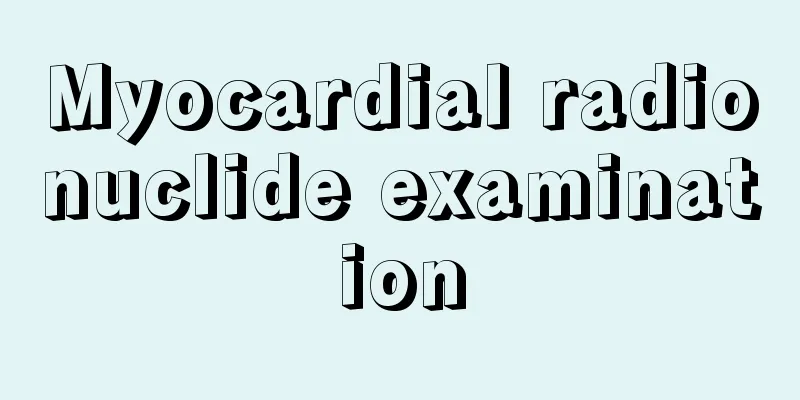Myocardial radionuclide examination

|
With the continuous development of modern society, there have been certain major breakthroughs in various fields. Medicine has developed rapidly, and medical treatment methods are becoming more and more updated, which has given people a certain psychological confidence. Some methods of human body examination are also deeply trusted by people. So what is myocardial radionuclide examination? Today I will give you a brief introduction on what myocardial radionuclide examination is. Myocardial ischemia is a way doctors evaluate how well the heart is functioning. It uses imaging tests to show: How much blood does the myocardium supply? What happens when the heart pumps blood to the rest of the body Usually myocardial radionuclide examination is done together with "stress test". A stress test measures how well the heart works when it beats faster, when it demands more blood. A stress test can check whether the heart is getting enough blood during this time. The stress test is done together with the myocardial isotope examination, which is called the "radionuclide exercise stress test". 2. Why do doctors need to perform myocardial radionuclide examination? Doctors may do myocardial ischemia or radionuclide exercise stress testing in the following situations: Check for insufficient blood flow to the heart muscle Diagnosing heart disease or following up on patients with confirmed heart disease Post-MI or post-cardiac surgery examinations See how the heart pumps blood to the rest of the body 3. What preparations are needed before undergoing myocardial radionuclide examination? Before the myocardial ischemia test, your doctor will ask you about all the medications you are taking, and they may adjust your medications. Avoid eating or drinking before the test, and avoid drinking anything with caffeine 24 hours before the test. 4. What will be done during myocardial radionuclide examination? First, your doctor, nurse, or technician will do an electrocardiogram (ECG or EKG), which records your heart's electrical activity by recording your heart rate and rhythm. Myocardial radionuclide examinations involve small amounts of radiation; excessive exposure may cause serious health problems, such as malignant tumors. For most people, the amount of radiation from a cardiac radionuclide scan alone does not cause any long-term problems. However, your doctor will tell you about the possible side effects of radiation before the examination. Other possible disadvantages of myocardial radionuclide examination include: Possible redness or pain at the site of the IV in your arm Side effects of stress testing - the heart rate will increase significantly during exercise, and people may feel chest pain, difficulty breathing, palpitations or dizziness. |
<<: How to quickly remove moisture from the body
>>: How to make the pan non-stick?
Recommend
Reasons for unformed stool
With the changes in environmental factors and as ...
Can health products treat uterine cancer?
Many cancer patients often use a lot of tonics, b...
How to cut mango
Mango is a very good fruit for many people. It no...
What causes breast pain?
Breast pain is a phenomenon that many female frie...
What should I do if my underwear is not washed and has bugs?
Some experts say underwear is the dirtiest part o...
When inhaling, the nasal secretions contain hair and blood
Everyone has experienced blood in the nose, but d...
Detailed introduction of Qiaomu's thyroid nodules
Tall thyroid nodules are a disease that causes se...
What is the best way to treat liver cancer patients? Liver cancer patients can choose interventional treatment methods
There are many methods for treating liver cancer....
Why do I need chemotherapy before surgery for ovarian cancer?
With the progress of the times, people's livi...
What do women need to prepare when going to Tibet
With the rise of tourism in recent years, many gi...
What are the factors that cause colon cancer
You may not know much about colon cancer. It is n...
Is T3 laryngeal cancer serious?
Laryngeal cancer T3 means that the tumor causes m...
What causes colorectal cancer
Studies have shown that factors such as diet, env...
Which hospital should I go to for diagnosis of bladder cancer
In clinical practice, we cannot tell what the dis...
Is it OK to drink lemon water and sunbathe?
Lemon is a common fruit and is also cheap, but ma...









